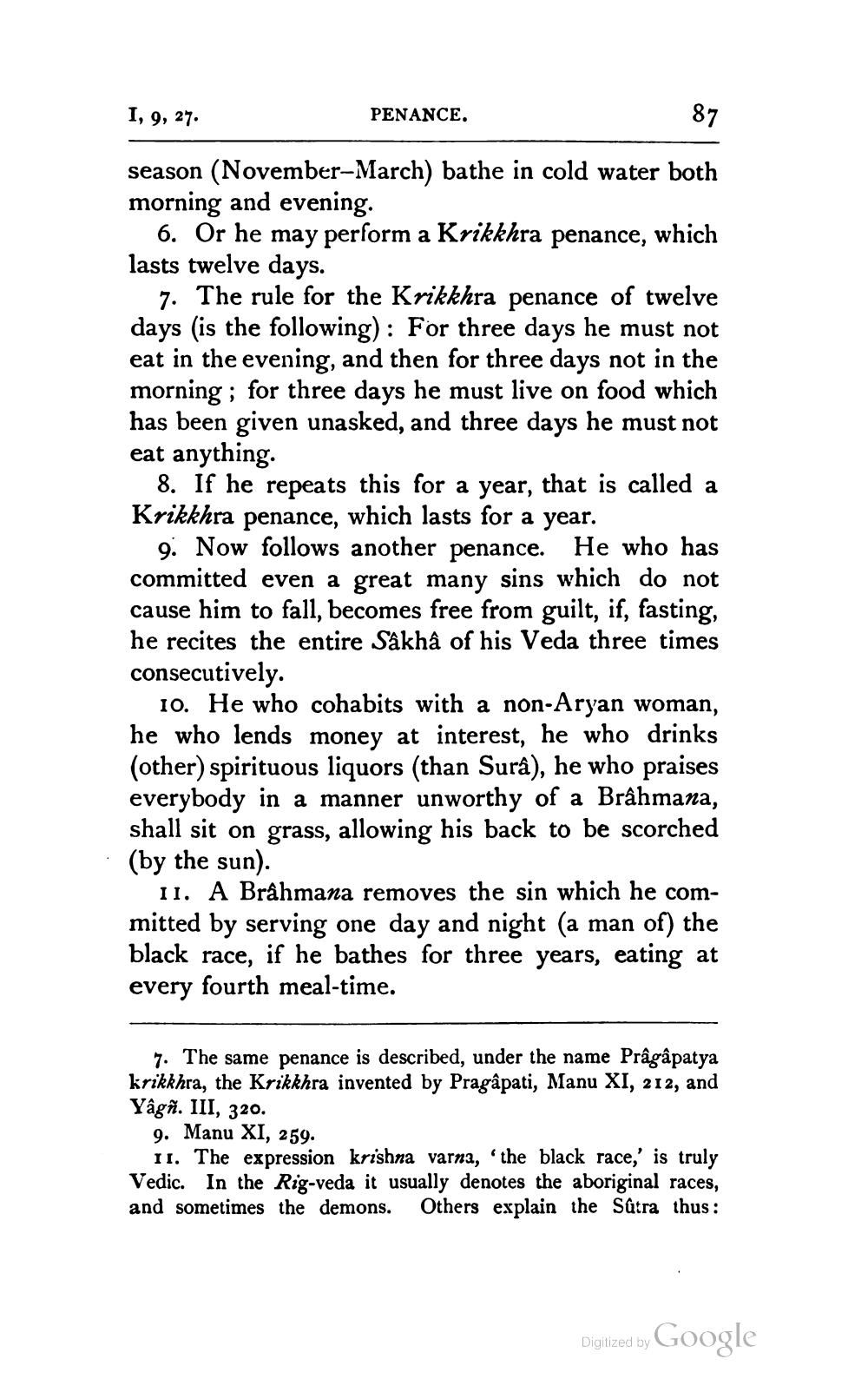________________
87
I, 9, 27.
season (November-March) bathe in cold water both morning and evening.
6. Or he may perform a Krikkhra penance, which lasts twelve days.
PENANCE.
7. The rule for the Krikkhra penance of twelve days (is the following): For three days he must not eat in the evening, and then for three days not in the morning; for three days he must live on food which has been given unasked, and three days he must not eat anything.
8. If he repeats this for a year, that is called a Krikkhra penance, which lasts for a year.
9. Now follows another penance. He who has committed even a great many sins which do not cause him to fall, becomes free from guilt, if, fasting, he recites the entire Sâkhâ of his Veda three times consecutively.
10. He who cohabits with a non-Aryan woman, he who lends money at interest, he who drinks (other) spirituous liquors (than Surâ), he who praises everybody in a manner unworthy of a Brahmana, shall sit on grass, allowing his back to be scorched (by the sun).
11. A Brahmana removes the sin which he committed by serving one day and night (a man of) the black race, if he bathes for three years, eating at every fourth meal-time.
7. The same penance is described, under the name Prâgâpatya krikkhra, the Krikkhra invented by Pragâpati, Manu XI, 212, and Yâgn. III, 320.
9. Manu XI, 259.
II. The expression krishna varna, 'the black race,' is truly Vedic. In the Rig-veda it usually denotes the aboriginal races, and sometimes the demons. Others explain the Sûtra thus:
Google
Digitized by




